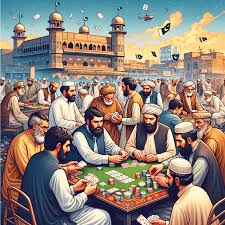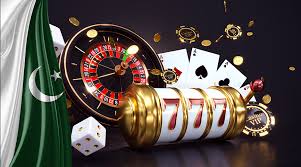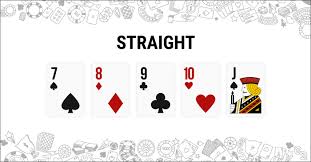
Gambling in Pakistan remains a deeply controversial and legally complex issue, shaped by the intersection of religion, politics, law, and economics. Despite its widespread presence in the form of underground betting, cricket gambling, and illicit casinos, gambling is officially prohibited in Pakistan under the Prevention of Gambling Act, 1977. The politics behind Pakistan’s gambling laws reflect the country’s social, moral, and religious values, as well as the enduring tension between modernity, economic opportunity, and religious conservatism.
The debate over gambling in Pakistan is far from straightforward. While gambling is viewed as a moral vice by many, especially in religious circles, the state’s continued struggle to regulate or legalize gambling exposes deeper questions about political power, public opinion, and the economic interests at play. This article explores the political dynamics that shape gambling laws in Pakistan, examining the role of religion, state control, economic factors, and the emerging role of digital platforms in the ongoing debate.
The Religious and Moral Foundations of Gambling Laws
At the heart of Pakistan’s gambling laws lies the country’s Islamic foundation. Since its creation in 1947, Pakistan has sought to align its legal and political systems with Islamic principles. This religious context has profoundly shaped the country’s stance on gambling, which is widely viewed as sinful under Islamic law (Sharia). In Islam, gambling, known as maysir, is strictly forbidden due to its association with greed and harm to individuals and society. The Quran explicitly condemns gambling as “the work of Satan,” further reinforcing the Islamic perspective that gambling is a destructive force.
Given the prominence of Islam in Pakistan’s national identity and the widespread influence of religious leaders, the prohibition of gambling is deeply embedded in the country’s legal framework. Religious groups and clerics wield considerable influence over policymaking, often pushing for strict laws to curb activities they consider morally reprehensible. The Council of Islamic Ideology (CII), a body tasked with advising the government on Islamic legal matters, has consistently opposed the legalization of gambling in Pakistan, framing it as a direct violation of Islamic ethics.
The political leadership, particularly in more conservative circles, has historically embraced these religious views. By aligning themselves with Islamic values on matters like gambling, politicians can bolster their support base, especially among religious voters. This moral backing helps consolidate power among conservative factions in Pakistan, where issues of ethics and religious principles often take precedence over economic considerations.
Political Control and State Authority
The politics of gambling laws in Pakistan are also influenced by the state’s role in regulating behavior. By outlawing gambling, the Pakistani government has positioned itself as the moral arbiter of its citizens’ actions, reflecting its desire to maintain social order and public virtue. In this regard, the Prevention of Gambling Act, 1977 was enacted to establish a strict legal framework against all forms of gambling—both public and private—and impose severe penalties for violators. These laws reflect the government’s attempt to control and monitor the behavior of its citizens, reinforcing a sense of moral discipline in society.
However, despite these laws, gambling continues to thrive in underground markets, particularly in urban centers and through online platforms. The state’s inability to fully enforce the prohibition of gambling has led to the growth of a black market, where illicit gambling syndicates operate with relative impunity. This contradiction between legal prohibition and the persistence of gambling highlights the limits of state authority in regulating personal behavior, especially when economic incentives or recreational desires are at play.
In some cases, the government has been accused of turning a blind eye to illegal gambling, particularly when it involves influential individuals or high-profile events. The reluctance to crack down on gambling could be attributed to the economic benefits associated with it, such as the flow of money into local economies and the informal employment generated by betting activities. In this context, political decisions regarding gambling laws are not just moral or ideological but may also be influenced by political pragmatism and the need to maintain economic stability.
The Economic Dimension of Gambling Politics
The economic implications of gambling are another significant factor that influences the politics of gambling laws in Pakistan. While the government officially outlaws gambling, the economic reality is more nuanced. Illegal gambling generates substantial revenue, much of which flows into the informal sector and is largely untaxed. In a country like Pakistan, where the formal economy struggles with low tax revenue, this unregulated gambling economy represents a lost opportunity for the state to capture potentially significant financial gains.
However, the economic arguments in favor of legalizing gambling face significant opposition, especially from religious and conservative political forces. Legalizing gambling, even for economic reasons, would be seen by many as a betrayal of Pakistan’s Islamic values. Such a move could trigger a backlash from the public, particularly among conservative segments of society who might view it as a step toward moral decay and societal breakdown.
On the other hand, the continued growth of online gambling platforms has presented a new challenge for Pakistan’s political landscape. With the rise of digital gambling, many Pakistanis now have access to international betting websites that operate beyond the reach of local laws. Online gambling is largely unregulated in Pakistan, and the government’s inability to monitor and control these platforms has led to a growing number of young Pakistanis engaging in online sports betting. This shift to digital platforms further complicates the political discussion, as it poses new legal and enforcement challenges, making it even harder for the state to maintain control over gambling activities.
The Role of Media and Public Opinion
The role of the media in shaping public opinion on gambling also plays a critical role in the political dynamics of gambling laws in Pakistan. Media outlets, both traditional and digital, frequently feature discussions on gambling, particularly in relation to cricket betting, which is one of the most widely discussed forms of gambling in the country. While much of the mainstream media highlights the negative effects of gambling addiction, financial ruin, and organized crime, some argue that media sensationalism can actually contribute to the normalization of gambling in society. By consistently covering gambling-related stories, media outlets might inadvertently increase public interest in gambling, especially among younger people.
The media also serves as a platform for political discourse around gambling laws. Political leaders, especially those with conservative agendas, often use the media to emphasize the moral and religious arguments against gambling, framing it as a threat to Pakistan’s Islamic identity. On the other hand, those advocating for more lenient policies on gambling or even legalization might use media platforms to argue the economic benefits and the need for modern laws that reflect contemporary global trends.
Conclusion: A Complex Political Landscape
The politics behind gambling laws in Pakistan reflect the tension between religious conservatism, state authority, economic opportunity, and public opinion. While the country’s strict laws against gambling are largely driven by religious beliefs and moral concerns, the continued prevalence of illegal gambling underscores the complexities involved in regulating such an inherently controversial activity. Economic factors, such as the potential revenue from legal gambling markets, also play a significant role in the debate, though they are often overshadowed by fears of moral erosion.
As Pakistan’s political landscape evolves, the debate over gambling laws is unlikely to fade anytime soon. While there is potential for economic growth through regulated gambling, the moral and cultural implications remain a significant barrier to change. The future of gambling laws in Pakistan will likely depend on how these competing factors—religion, politics, economics, and public opinion—continue to interact in the coming years. Whether Pakistan will move toward a more permissive gambling policy, or whether the current prohibitions will remain in place, depends on the ability of lawmakers to navigate this complex and often polarized issue.
Experience Thrills and Big Rewards at KKClub Casino – Pakistan’s Premier Gaming Hub!



